Sharp, painful sensation in the lower abdomen, the urge to urinate - cystitis brings unpleasant symptoms, and these are exactly the first signs of the disease in women.This is an inflammatory process that occurs in the lining of the bladder.Causes and conditions are more common in women than in men.
What is cystitis
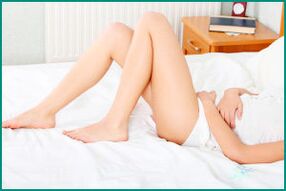
The bladder is a muscular organ located in the upper part of the pelvis that collects urine before expelling it through the urethra.This is how the terminal parts of the urinary system are arranged in the male and female bodies.The bladder cavity gradually fills up through the two ureters, which are the conductive channels through which the kidneys filter fluid.When the organ is more than half full, a person will have the urge to urinate.This is an unconditioned reflex.
The internal environment of the urinary system is sterile, just like urine excreted by healthy people.Ingestion of infectious agents capable of multiplying under these conditions, as well as chemical irritants and allergens, can lead to the development of cystitis, the first symptoms of which will immediately indicate a disorder in the said chain.
Bladder inflammation, allergies, and chemical irritations can occur for a variety of reasons.The way irritants penetrate the body also varies.
For women, the so-called ascending route is more typical, in which the pathogen enters the cavity and ascends from the external urethra.
The same type of cystitis can also be seen in young children, especially infants, because they do not have adequate home care or there is postpartum pathology or organic disease.
Causes for women
It is necessary to have a clear understanding of the differences between causes and conditions that trigger cystitis symptoms in women.The causes include infectious and non-infectious factors.The first group includes:
- Opportunistic microorganisms;
- Pathogenic microorganisms;
- Causes of sexually transmitted diseases.
Opportunistic microorganisms are so called because they exhibit toxic properties when exposed to the right conditions.Usually, the causative agents of such diseases are representatives of the normal biological community of the vaginal or intestinal microflora.They persist on the skin of the reproductive organs and act as a protective barrier.As soon as a girl becomes hypothermic and is treated with antibiotics (antibiotics suppress not only pathogenic bacteria, but also normal flora), the number of representatives of the microbial community increases rapidly.When they reach a critical mass, they no longer perform a barrier function, change the pH of the mucosa, and themselves become the cause of the development of inflammation.
Furthermore, by multiplying, the microorganisms spread to areas where they are unusual, such as the urethra, bladder.Pathogenic bacteria can be a source of inflammatory response during any type of hospital stay, but most commonly, patients may become infected in maternity hospitals and obstetrics and gynecology units.It is in these that the microorganisms that cause hospital infections circulate.
These pathogens differ from ordinary pathogens in that, during repeated passage in weakened organisms, they acquire new characteristics, such as:
- Salmonella, spread through airborne droplets;
- the development of resistance to a wide range of antibiotics;
- Immunity to broad-spectrum antimicrobials;
- The ability to use the species' unusual substances as a nutritional substrate.

The clinical course of cystitis caused by pathogenic and opportunistic microorganisms that acquire new properties during development is characterized by painful manifestations.Fighting this type of cystitis is more difficult because of the reduced range of antibacterial drugs.
Due to the particularity of the anatomical structure of the urinary organs, sexually transmitted diseases cannot occur without the urinary organs.The most common of these are gonorrhea, trichomonas urethritis and cystitis.Women have a wider and shorter urethra than men, and bacteria pass through the urethra into the bladder cavity and begin to multiply there.
Non-infectious causes are divided into chemical factors and allergic factors.Chemical irritants can enter through the blood and are filtered by the kidneys.These can be medicinal substances, hazardous substances of an industrial nature, food ingredients.
Allergens are evidence of a severely suppressed immune system, which develops allergic reactions to common substances.
Other factors that contribute to the development of inflammation include: hypothermia, wearing synthetic underwear, neglect of personal hygiene rules, acute and chronic gynecological diseases, childbirth, eating spicy foods, pregnancy.
early signs
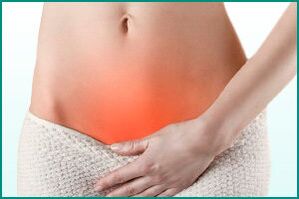
The first signs of cystitis in women already require expert treatment and the patient's close attention to his body.You can suspect the development of bladder inflammation by detecting the underlying syndrome:
- Persistent itching in the external genital area;
- Discharge from the urethra;
- persistent pain after urination;
- urethral pain;
- increased urge to go to the toilet;
- Changes in color, urine clarity, and presence of visible sediment.
If not paid enough attention and treated, the initial symptoms will gradually worsen and turn from acute to chronic.
progressive pathology
If treatment is ignored or other rules are not followed, the history of a patient with chronic cystitis can become quite lengthy.Acute symptoms soon lose their distinctive character and subside, no longer causing significant discomfort.
But there are many signs of progressive inflammation:
- Secondary kidney infection;
- Episodes of worsening infection are accompanied by fever;
- worsening of general condition;
- Very little urine is passed out;
- Urine has a strong smell, is cloudy, and may be mixed with pus or blood.
Chronic cystitis does not occur in isolation; renal inflammatory processes and gynecological pathology complicate the situation.
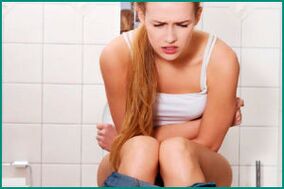
The body's resistance gradually decreases, and infections of other organs lead to aggravation of cystitis, which disappears as the body temperature rises, causing symptoms of systemic poisoning, severe weakness and discomfort.
Frequent urge to urinate but small amounts of fluid passed out.This is because it overstimulates bladder receptors due to changes in pH balance and pathological impurities.
It was painful to urinate and the spasmodic pain kept me awake even at night.
There is tension in the suprapubic area and difficulty palpating the abdominal muscles in the lower abdomen.
Urine has an unpleasant, unusually pungent odor.As you observe, you can see the sediment falling to the bottom.
Typical symptoms of acute and chronic cystitis
The acute process occurs for the first time after exposure to an infectious agent, chemical irritant, or allergen.The symptoms are clear and distinct: severe pain during urination, discomfort during emptying the bladder, pain in the lower abdomen, itching and burning at the urethral outlet.Short-term increases in body temperature, nausea or weakness, and loss of appetite may occur and may be related to worsening of symptoms after ingestion of stimulating foods or beverages.
Chronic pathology is characterized by disappearance of symptoms, persistent discomfort in the suprapubic region, and persistent pain.During the remission phase, the patient feels reasonably healthy.Exacerbations may occur with hypothermia, consumption of irritating foods or drinks, or repeated exposure to allergens.
Types of cystitis in women
Bladder inflammation is classified according to different criteria.
The main types of cystitis include:
- Depending on the nature of the process: acute or chronic;
- Due to: bacterial, chemical or allergy;
- Affected by related factors: postpartum, secondary, postoperative.
Postoperative cystitis occurs after a miscarriage or caesarean section, in which urine is expelled through a catheter.It is this medical device that can be a source of infection.
Characteristics of postpartum cystitis
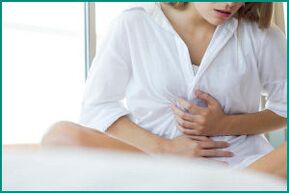
The postpartum period requires close attention and monitoring of postpartum women, especially at home.Observing careful hygiene care rules and regular urination habits will help avoid possible postpartum complications and an increase in urinary tract infections.
Postpartum cystitis occurs in the same way as other cystitis, but its treatment is difficult because not all medications can be taken by breastfeeding women.Additionally, this period is characterized by damage to the external genitalia, making it difficult to urinate and use the usual toilet.
Since treatment of cystitis does not pose major difficulties, serious illness rarely occurs.But most of the time, if the pathogen is a multidrug-resistant organism, we have to deal with a chronic form that is difficult to correct with drugs.
diagnosis
Difficulties usually do not arise after a thorough history, urine testing, and examination of the patient.The results of the analysis reveal deviations from normal conditions: reduced specific gravity, changes in pH, presence of pathological impurities in blood, leukocytes, sediments, urate and oxalate crystals.
If necessary, ultrasound and X-ray contrast images are performed to identify the cause of the disease.
treat
Acute and chronic cystitis must be treated comprehensively.Using different treatments simultaneously can help patients recover quickly.
The main treatment drugs are:
- Antibacterial tablets;
- anti-inflammatory drugs;
- analgesics and antispasmodics;
- Physical therapy (remission period);
- diet;
- traditional method.
Medications to treat cystitis are prescribed by specialists.Anti-inflammatory drugs are preferably prescribed from the group of nonsteroidal drugs; they have antispasmodic and analgesic activity.
The diet includes eliminating acidic, pickled, spicy foods that have irritating effects from the diet.In this case, it is necessary to drink at least two liters of fluid per day to disinfect the bladder.
folk recipes
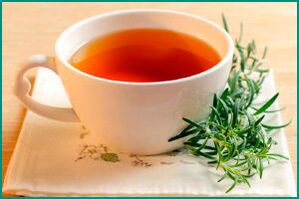
Alternative medicine has extensive experience in treating urinary tract infections.These recipes receive many positive reviews, which confirms the effectiveness of these methods.But they can only be used in conjunction with medication.
Good results can be obtained by ingesting a decoction of parsley root, chamomile and lingonberry leaf tinctures.Drinking lingonberry juice has excellent disinfecting effects.The healing properties of "bears ears" and cranberries have long been known.You can prepare the following composition and take it 3 times a day after meals:
- Take dried herbs such as rosemary, lovage, thyme, and rose hips;
- Pour in boiling water for 30 minutes;
- Boil in water bath for 20 minutes;
- Leave for 30 minutes;
- Strain and drink as above.
No alcohol, hard drinks or smoking is allowed during treatment.
prevention
Measures to prevent cystitis are simple but effective.It is necessary to strictly abide by the care rules and sexual culture, change sanitary products and underwear frequently, avoid hypothermia, and avoid consuming irritating foods and drinks.
























